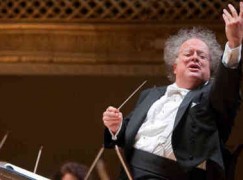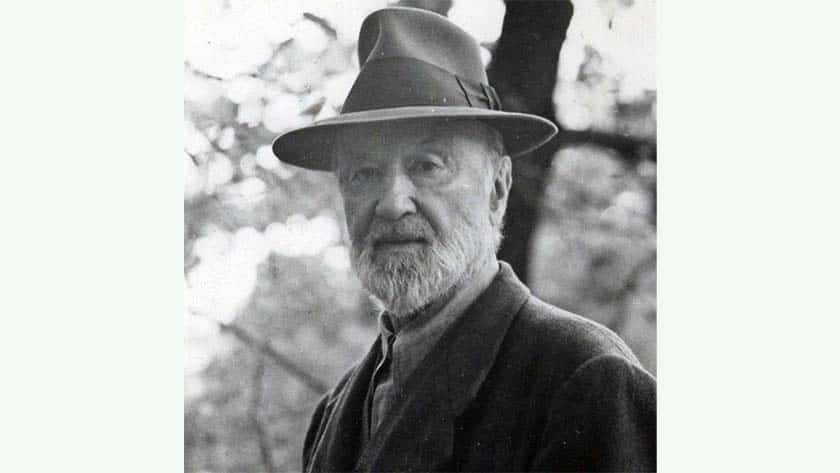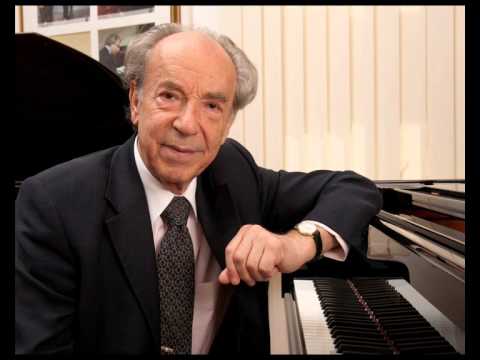Breaking: James Levine is removed
mainThe Metropolitan Opera has announced that its music director will retire at the end of the season.

Levine, 72, has held the post since 1976. In recent years he has been confined to a wheelchair and his beat has been affected by a tremor. There would be speculation on premiere days whether he was fit to conduct that night.
Levine did not want to go. He showed the Met and the New York Times medical certificates indicating the he was fit to stay. But after a recent Simon Boccanegra wobble the board insisted he went.
Now, the agony is over, along with the indignity.
James Levine has lived to witness his own history.
A miserable end for a once-great conductor.
UPDATE: The official announcement here.





Oops! Why is the title worse than the fact?
Come on, that title … I thought he was dead
Yes, that was less than classy.
I’m not a fan of some of the “click-bait” headlines used here on Slipped Disc, but this one seems quite reasonable and accurate. James Levine has indeed been removed as Music Director of the Metropolitan Opera, and it appears that this has been announced without the typical “fig leaf” of his choosing to resign or retire. Nothing about the word “removed” suggests death to me.
The title has been changed. The original title before redaction was “Breaking: James Levine Is Gone”.
Ah, and I see that version is still in the link to this article. In that case, I agree with the objection! And I’m glad that Mr. Lebrecht saw that he had erred and fixed the title.
I agree. It is to his credit that he changed the title.
I was in the audience for Simon Boccanegra – Levine did a wonderful job, giving the music just the right gravitas and a sense of darkness and foreboding. Gelb and the board should be ashamed of themselves. Now they will probably bring in this annoying fellow Yannick – fast, energetic and uncontaminated by any interpretive depth.
Did you see that February 3 article in the NY Times about the state of Levine’s Parkinson’s disease? He reportedly still has the occasional good night in something like Boccanegra, but too often – especially after the first hour of a performance – he simply doesn’t have control of his motions. What the company had to do to get him and the performers through an evening was frightening.
Some of those well-reviewed performances came off with extraordinary measures behind the scenes, Met employees said. Orchestra players who had trouble reading Mr. Levine’s beat relied more on intuition of what they thought he would want and on watching the concertmaster. Singers onstage looked more to the prompter’s box for direction. And Donald Palumbo, the Met’s chorus master, conducted the chorus from the wings of the stage, with using an audio monitor to help him coordinate with the orchestra.
But Levine, who has been notorious for decades for literally fleeing from unpleasant situations, was desperate not to let go and in denial.
“I felt so good about the way I was able to work — other than this gestural thing.”
It was time.
Oops, I see the blockquote codes didn’t take.
Dudamel! He was considered for La Scala, so why not the Met?
Except that he is not an opera conductor (in terms of both repertoire and technique)
Dudamel would be an inspired choice. Levine had little or no operatic experience when the MET first hired him.
Levine as a young man was already regarded as a great talent even by someone like Szell (who wasn’t given to excessive praise). Dudamel is a good conductor, but not even close to the same level of ability.
Point taken regarding Levine. I am still skeptical about Dudamel, his obvious abilities in the symphonic repertoire notwithstanding. But I would love to be proven wrong of course. However, I doubt Dudamel would quit his LA and Simon Bolivar jobs. What the Met needs today is precisely someone who his fully committed to the task of rebuilding the house. But, here again, I could be wrong.
You are incorrect. Maestro Levine performed operas for a few years with the Cleveland Orchestra, and I performed in operas , with him, conducted by him for 4 years at the CIM Opera Theatre and CIM Orchestra.
For the record, GD has also already conducted a considerable number of operas and is scheduled to lead a few more operatic performances during next couple of months.
Singers stop singing when the voice is gone. Dancers stop dancing even earlier. Why should conductors not retire when they are physically unable to direct? Anything else is simply vanity.
Excellent point with which I agree. However, most conductors do go right to the very end – like Harnoncourt, who died just 3 months after announcing his retirement (when his upcoming concerts had already been printed in the Musikverein brochures and online).
There would be more than the physical tremor here which determined Levine’s fate; a little matter of insurance liability for The Met when he’s obviously in poor physical condition.
You’ve got to feel sorry for Levine all the same! A great musical career and the horrible void of silence and ‘irrelevance’ in retirement!!
“like Harnoncourt, who died just 3 months after announcing his retirement”
Yes, but the season program was published early in the previous year, ie. almost a full year before he died. There’s no way the Musikverein and the Styriarte Festival could know that Harnoncourt’s health would deteriorate so rapidlly.
I attended one of his very last concerts (Missa Solemnis in Graz) and despite walking with dificulties, he still conducted standing up with the same level of energy as ever.
The comparison between Levine and Harnoncourt doesn’t stand since Harnoncourt knew when to retire… unlike Frans Brüggen… or Levine.
Yes, I was at the Musikverein last May when he hobbled onto the platform with a walking stick, but he addressed the audience as usual beforehand. The woman next to me said, “we all believe he will retire very soon”. I did think this was the last time I’d ever see him.
He will be very much missed!!
I was there too. I remember being surprised how fast his health had deteriorated despite the fact that he seemed as alert as before when conducting: just a year before, he conducted twice the three Mozart/Da Ponte operas at the Theater an der Wien within weeks and he seemed in great shape.
Yes, he will be missed. He *is* missed. I can’t beleve he’s gone.
There will be, tomorrow morning, at the Musikverein, a memorial ceremony. Tomorrow evening concert with the Concentus musicus (which was supposed to take place in October, with him) has a new program (Mozart 40th and Requiem instead of the Bach cantatas orignally planned) and will also be some sort of memorial.
I’m sure he would have been opposed to all of this, but on the other hand, there’s no way we could let him go without thanking him properly.
This was all about vanity, or at least ego. He’s getting his Emeritus title, he will be kept in the stable with lots to do (which is fine, as long as he is fit). He is hardly being sent out to cold seas on an ice-floe.
No need to weep for a man who is probably rich, well-fed and -housed, and well-loved. He will not be in isolation, though he does strike me as the kind who will be on the phone, like the Duke of Windsor, bothering busy people who have more to do than prop him up. He needs to get graceful fast or he will tarnish his own distinguished legacy.
Now the fun begins: this will be better than the Berlin Follies.
He was a wonderful and inspiring conductor. He must also be rich. After all, in addition to the Met he had income over many years from Ravinia, Munich, Boston and the Verbier Festival, many recordings, will still have a continuing percentage of revenues from the Disney movie Fantasia 2000, and he conducted 14 Three Tenors concerts around the world at $500,000 a pop. He will not want for funds in retirement.
He’s not dead, Jimmy
A friend of mine retired from a major U.S. orchestra some years back. I remember asking him why he was retiring at the time, since his playing was still at the top of his game. He said that he would rather retire at the top of his game and have people say they were sorry that they weren’t going to play with him any longer, than wait too long and have people be relieved that he was finally retiring.
The analogy is not perfect. The skills and demands on an orchestral player are not the same as those on a conductor. Even so, there is something to be said for stepping down sooner rather than later.
I hope he can come back and be a guest conductor in the future. I’d love to attend another Lulu or Wozzeck conducted by him.
Or a Parsifal.
The ROH must be glad they got Pappano to sign up only last week till 2020!
Yes, Pappano would have been a top choice I think. More experienced than YN-S, but YN-S seems to bring an abundance of talent and inspiration that we don’t see very often. The critic in the NYT today suggested Esa Pekka-Solonen in his ravishing review of Elektra, but I doubt he wants such a demanding job. Franz Welser-Most, of whom I am not a fan, is a very experienced opera conductor given his stints in Zurich and Vienna, and he may have more time on his hand since leaving Vienna. He also has a roster of very good singers that he often brings to Cleveland.
Will Gelb still put in a call to Tony P though?
From your mouth to Gelb’s ears !!!
What about Fabio Luisi? Wasn’t he the “crown prince”?
It’s widely thought here in New York that Luisi was ill-used by Gelb and the Met, tossed aside when more glamorous conductors were available, and that he’s chosen to move on.
Donald Runnicles anyone?
You’re right that Runnicles would be excellent. I’m sill blown away by memories of the Peter Grimes he did here. But isn’t he known for being a bit — what’s the word I want — truculent? I suspect he and Peter Gelb would not get along.
I have heard that, for all the talk of Yannick (some of which may just be wishful thinking), at least some of the orchestra would prefer Gianandrea Noseda. The latter, after all, already has experience as artistic director of an opera house – and very successfully, too. And I can’t help thinking Noseda would be relieved to get out of the Italian opera world’s current dysfunction.
But, as Yannick is contractually tied to the Philadelphia Orchestra, Noseda is tied to the National Symphony Orchestra in D.C., beginning a year from September. Can one do both?
The new MD, whoever he might be, will probably conduct only a fraction of the 110 performances a year Levine used to conduct at the Met when he was younger. So it is possible to hold two MD positions. Also, I believe most contracts have an “escape clause”, that would allow the conductor to leave his present position before the expiration of term of the contract. That said, I heard Noseda a few times – very, very good, but not outstanding.
How about Bychkov ? Apparently, the NY Phil musicians wanted him as MD, but the board chose van Zweden.